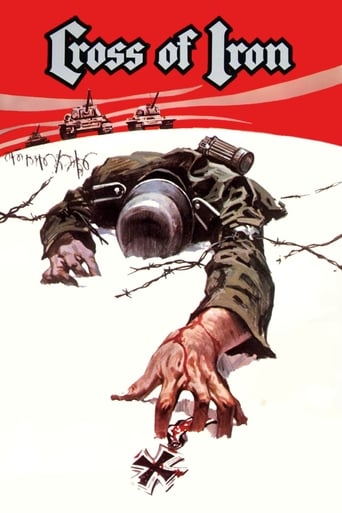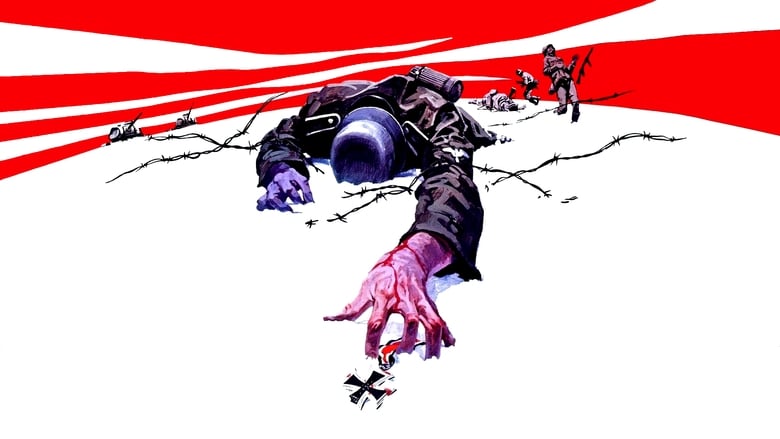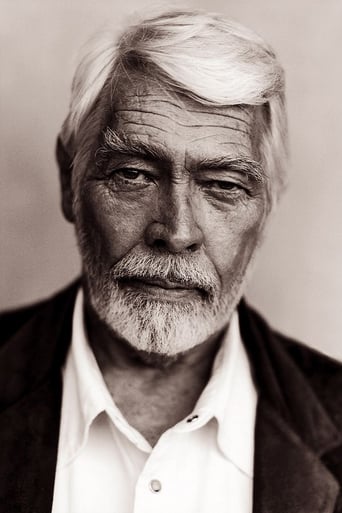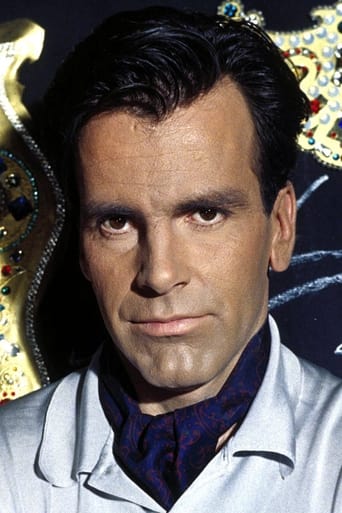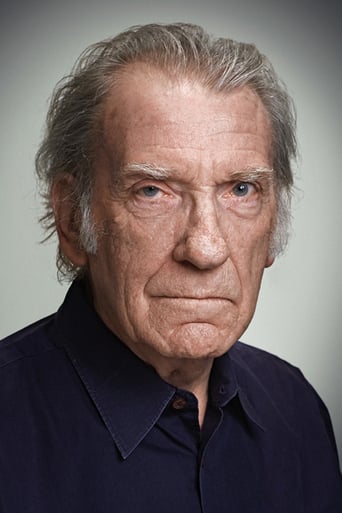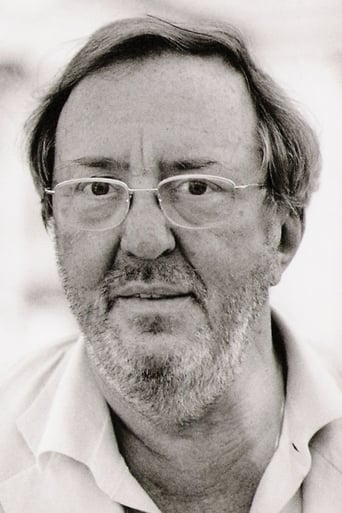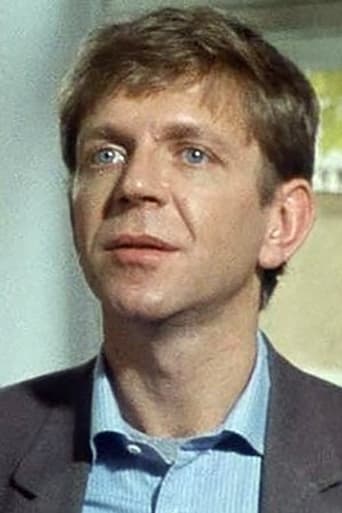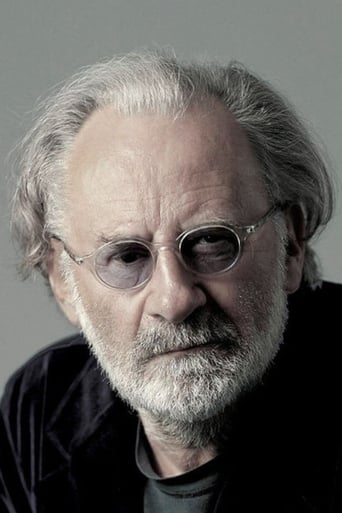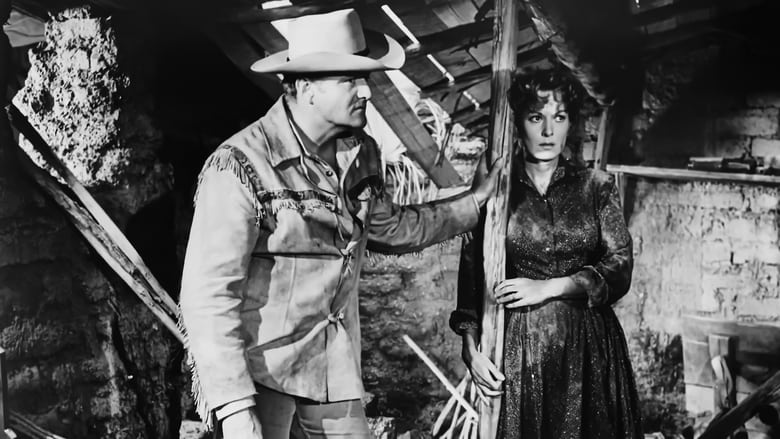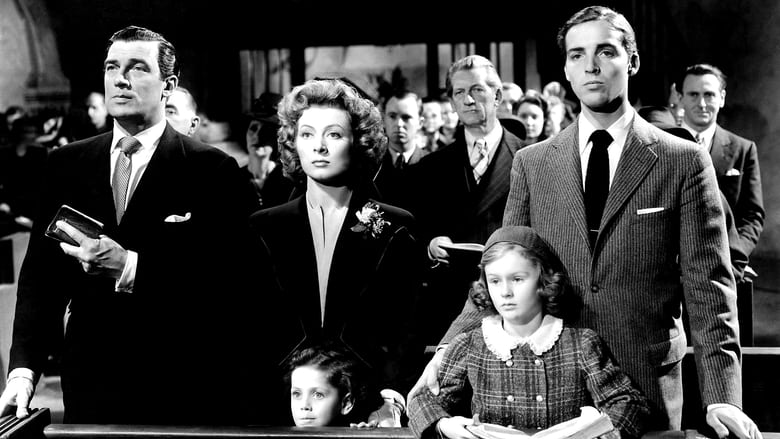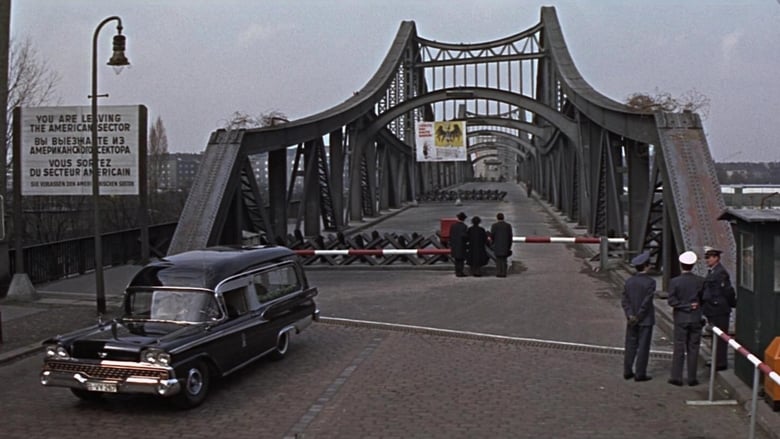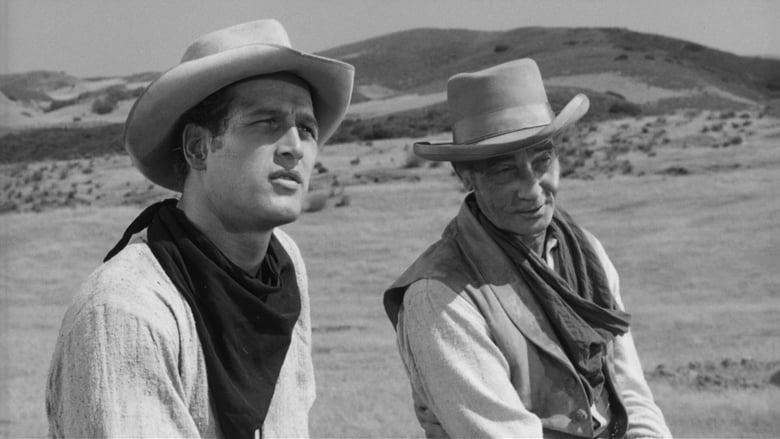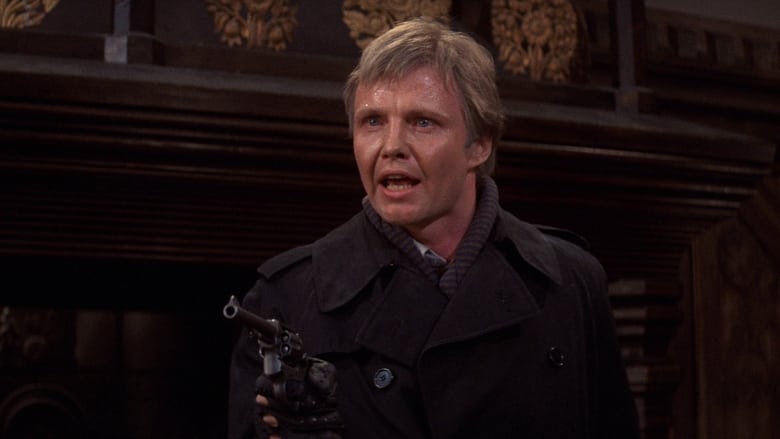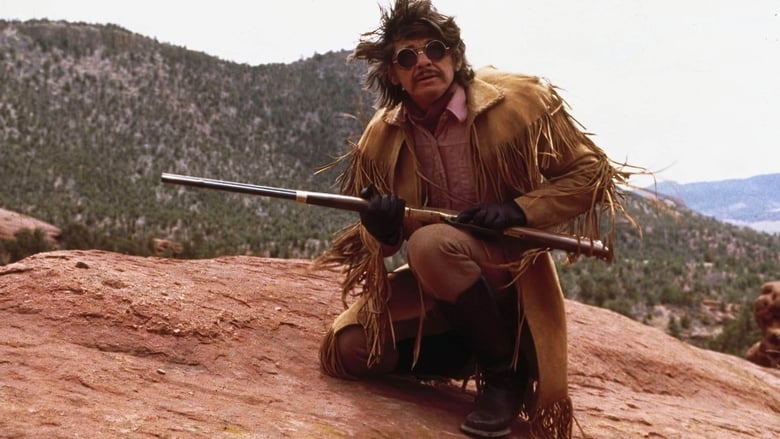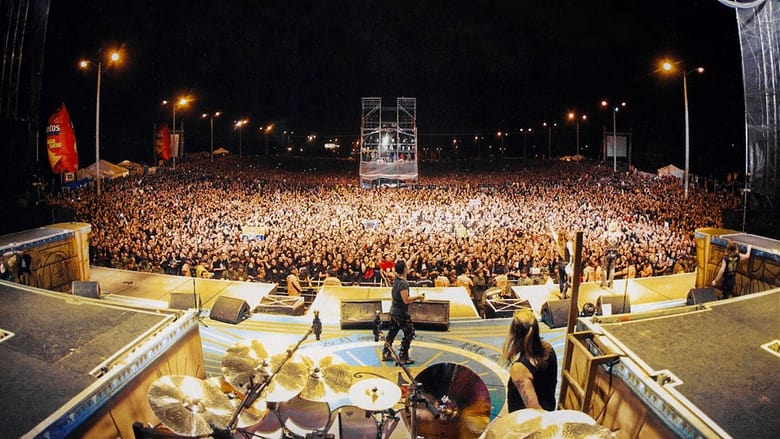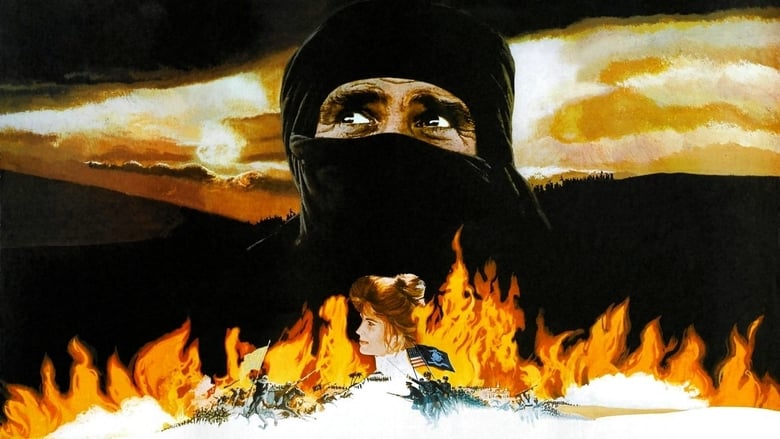It is 1943, and the German army—ravaged and demoralised—is hastily retreating from the Russian front. In the midst of the madness, conflict brews between the aristocratic yet ultimately pusillanimous Captain Stransky and the courageous Corporal Steiner. Stransky is the only man who believes that the Third Reich is still vastly superior to the Russian army. However, within his pompous persona lies a quivering coward who longs for the Iron Cross so that he can return to Berlin a hero. Steiner, on the other hand is cynical, defiantly non-conformist and more concerned with the safety of his own men rather than the horde of military decorations offered to him by his superiors.


Similar titles
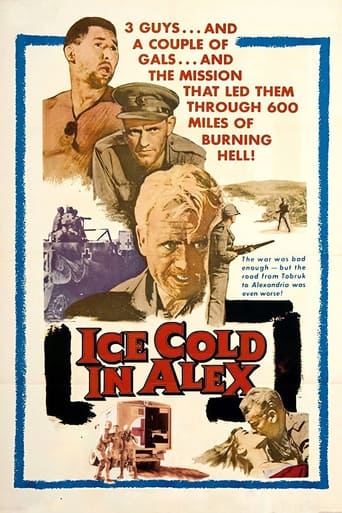
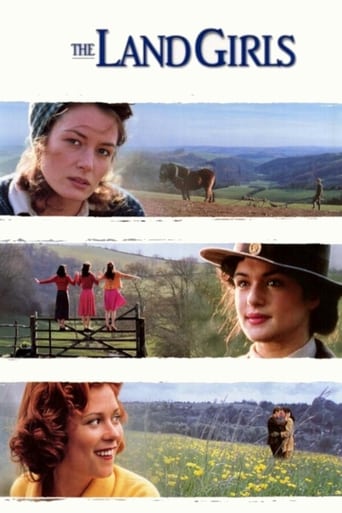

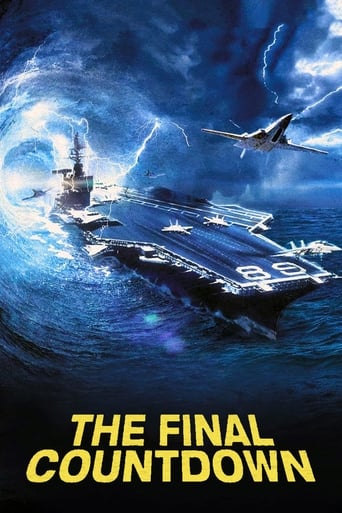
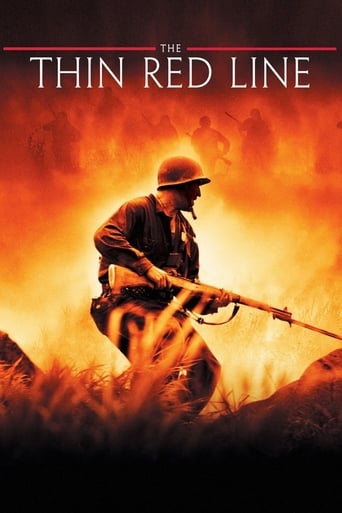
Reviews
Based on the novel of the same name, this film is one of Peckinpah's best films. The ambition of Peckinpah's efforts are shown by the large scale of the events shown, and you truly get a feel of the story he was trying to tell. But something gets lost in the translation from book to film, and this film is at times too subtle or too overt, with a lot of the subtleties of the characters getting lost in the process. Despite a fine cast, with many first rate actors, the movie aims high but just doesn't quite achieve the scope Peckinpah was going for.And what a cast it is, too. Including James Coburn, James Mason and Maximilian Schell, the chemistry between them proves to be one of the best parts of this movie. Coburn plays Sergeant Steiner, a man too long in the war and too jaded to be false in any way. His superior Captain Stransky (Schell) needs Steiner's help to vouch for him so he can get the Iron Cross medal he is obsessed with getting. Schell will go to any lengths to get the medal, and tries to convince Steiner to vouch for him regarding a battlefield event (that didn't happen the way Stransky said it did). Steiner, predictably, dislikes officers almost as much as he hates the war, and refuses to do it. At one point Steiner throws his own Iron Cross on Stansky's desk and blurts, "Here, take it!" but nothing less then a real Iron Cross will do. The two continue to be in conflict for the rest of the film, all done in a very murky subplot that is sometimes unclear - the main issue I have with this movie. This was obviously a herculean effort by Peckinpah, and despite the muddy subplot that the film centers around, the battle scenes are fairly well done. Filmed partly in Croatia - that was still firmly in the Communist Bloc at the time of filming - the battle scenes feature genuine T-34 tanks along with dozens of extras during the Russian assault scenes and give the movie a real touch of authenticity. Set in spring 1943 - one of the rare lulls in the Ostfront between Stalingrad and the colossal battle at Kursk - it does manage to give a sense of the overwhelming enemy facing the German Wehrmacht during all stages of the war. There's enough great battle scenes here to distract from the, somewhat weak subplot and to show what war in the mud of Russia might have been like. Unfortunately the movie has a relatively weak ending - Steiner and Stransky are still alive but still battling on at the end. So the ultimate fate of the two strongest characters is left untold.All in all a great war movie, if a little frustrating to interpret while viewing.
Cross Of Iron is a very good and different WW2 film that is very original and well done. This movie was'nt a big budget production by any means, but Sam Peckinpah got a lot of bang for his buck in his last great film. The film is gritty, bleak and depressing and is taken from the German soldier's point of view in the final days of battle on the Russian front. This film is mostly devoid of dogma or politics of the war, but very accurately conveys the horrors of war. James Coburn gives one of his finest performances as skilled German soldier Sgt. Steiner who is a killing machine, but hates the war and his superiors.(which mirrors Sam 's views on authority, especially producers, of which his battles are legendary) The film has excellent performers for sure with Maximillian Schell, James Mason and David Warner. The battle scenes are great and showcases a lot of Sam's signature slow motion shootouts. This is Sam Peckinpah's only war film and it is very unique and quite excellent that he comments on violence and ultra authoritarian governments. He does not beat the viewer over the head with this subtext, but the anti war message is there. Even with Peckinpah's alcohol and drug problems, he still is on the top of his game in this production and made a very memorable and effective anti war film.
When it came to Sam Peckinpah as a filmmaker, there was never an easy way of doing things, and a penchant for doing nothing the way Hollywood wanted. When he wasn't battling with studio chiefs and producers (which was a great deal of the time), he was frequently battling with critics who liked to nail him for his graphic violence and the complex approach he took to that violence, especially with films like THE WILD BUNCH and STRAW DOGS. It earned him the fairly distorting misnomer "Bloody Sam", which didn't really begin to explain the depth for which he cared about filmic art. And probably no other film of the fourteen he made was quite as infuriating as his 1977 World War II film CROSS OF IRON.Based on the novel of the same name by Willi Heinrich, the film is set along the Eastern Front of World War II, where in 1943 the battle between Stalin's Soviet forces and Hitler's German forces was becoming the personification of a meat grinder war. James Coburn, a Peckinpah favorite, gives another extremely probing performance as Sergeant Rolf Steiner, the leader of a vastly outmanned and outgunned platoon of German foot soldiers, who learns that his particular squad is about to be taken over by the very autocratic Captain Hauptmann Stransky (Maximillian Schell). For reasons that are quite selfish, namely the desire to get the German equivalent of the Purple Heart or Bronze Star, the Iron Cross, Schell forces Coburn to go into battle against a regiment of the Soviet army that literally cuts their platoon to pieces. As is par for the course in a Peckinpah film, we have two men in conflict with one another, both practically two sides of the same German coin, only one of them (Coburn) cares more for the lives of his men, and Schell just cares about getting that damned Iron Cross, and is so blatant about that ambition that he tells Coburn, "I will show you how a true Prussian fights." Coburn then retorts, quite rightly, "Then I will show you where the Iron crosses grow." It is not too surprising that the battle and action scenes in CROSS OF IRON are distinct from every other filmmaker that has ever lived; we are, after all, talking about Sam Peckinpah here. And he certainly doesn't make things easy; besides the carnage that he shows, he is as precise as ever at showing how the horrors of war affect the men that have to fight it, and how alienated and anesthetized they can be to death and killing on a mass scale we hope never to revisit. Coburn, of course, is brilliant in his role as the humane Steiner whose only concern is for the men he leads and not for the officer corps, especially not the vainglorious Schell (another fine performance). Both actors are supported by a great cast that includes, among others, Senta Berger (who played the love interest in the director's 1965 Civil War western MAJOR DUNDEE), David Warner, and James Mason.Unfortunately, CROSS OF IRON failed to find much of an audience outside of continental Europe because Peckinpah depicted World War II in such a politically incorrect way: from the point-of-view of German foot soldiers, as opposed to Americans and/or Brits, something that clearly seemed to alienate people just wanting to see a standard-issue war film where good guys and bad guys are clearly distinguishable. But that's John Wayne theatrics of the worst kind; and in real war, the line between good and bad is not only a thin one but it's a line that is also frequently crossed. In any case, Coburn, Schell, Mason, Warner, and their fellow German soldiers are frontline soldiers in the heat of battle, not the Nazi commandants who gassed six million Jews with impunity in the concentration camps. They may be wearing the uniform of a country and a leader with a (to say the least) unjust cause, but that by itself doesn't diminish the reality of the horrors they experience, and in that respect it makes them no different from the Americans, the British, or even the Soviets.Helped immensely by a crew that includes the great British cinematographer John Coquillon, who had already worked with Peckinpah on STRAW DOGS and PAT GARRETT AND BILLY THE KID, CROSS OF IRON is one of those films that ranks with the best films about any war ever made, whether it's about World War I (ALL QUIET ON THE WESTERN FRONT; PATHS OF GLORY), World War II (SAVING PRIVATE RYAN), or Vietnam (BORN ON THE FOURTH OF JULY; PLATOON; FULL METAL JACKET). Even with a few flaws in it, this is a movie that needs to be restored to its full original, and extremely disturbing, glory and power, especially for how it adds to Peckinpah's reputation as an ultimate seeker of the truth of Man's contradictions, no matter how disturbing or politically incorrect he is in doing so.
Sam Pekinpaugh has given us a big war-time movie situated on the Russian front, starring James Coburn as the savvy and taciturn Sgt. Steiner and Maximilian Schell as the newly arrived, dapper, Junker aristo, eager for the Iron Cross, the decoration given only for heroism in battle. It has Pekinpaugh's signature on it -- an abundance of painful deaths, more explosions than have ever before been committed to celluloid, and all in slow motion. The story is such that, if it weren't for some cogent lines, it could have been directed by Sam Fuller.I'll give one example of what I thought was a good line. At the end, both Coburn and Schell stand face to face, armed, and about to be overwhelmed and killed by the onrushing Russians. It's only a brief pause, but Schell admits his status still requires the winning of the Iron Cross. "You come with me," says Coburn, "and I'll show you where the crosses of iron are." It's neat because by a simple transposition of words within the phrase, Coburn has turned a medal (the Iron Cross) into a grave marker (crosses of iron). It has its weaknesses. It's really too long and too loose-limbed for what it has to say. As Steiner, Coburn is a monument to military perfection, while Schell is a stereotypical cowardly and spiteful traitor. Coburn does well enough by the role of the humanitarian but dedicated sergeant. Schell is a marvelous actor but he has only one scene in which he's able to put his chops on display -- when he tricks a subordinate into admitting that he prefers the company of men to women. "He said YES! He said YES!" Schell is in a transport of delight at having finagled his subordinate into a possible admission of homosexuality which, as far as we can tell, isn't true. The effect, though, is to make the subordinate a compliant slave.It's not a bad film in any way but it lacks poetry of any kind. Pekinpah by this time in his career was describing himself as "a functioning alcoholic." He's lucky he got it out at all.
